In the higher education system of the United States, minority-serving institution (MSI) is a descriptive term for universities and colleges that enroll a significant percentage of students from minority groups.
Northwest Indian College is a public tribal land-grant community college in Bellingham, Washington, United States. It was established by the Lummi Nation and is the only accredited tribal college or university serving reservation communities of Washington, Oregon, and Idaho.

Iḷisaġvik College is a public tribal land-grant community college in Utqiaġvik, Alaska. Operated by the North Slope Borough, a home rule government of the Iñupiat, it is the only tribally controlled college in Alaska, and it is the northernmost accredited community college in the United States. The college is located within the boundaries of the North Slope. It is an 89,000-square-mile (230,000 km2) region of Arctic tundra. It is connected to the 414-mile (666 km) Dalton Highway only during the winter, by an ice road for local residents. The community can also be reached by plane.

Turtle Mountain Community College (TMCC) is a private tribal land-grant community college in Belcourt, North Dakota. It is located ten miles (16 km) from the Canada–US border in Turtle Mountain, the north central portion of North Dakota. In 2012, TMCC's enrollment was 630 full- and part-time certificate and degree-seeking students.
United Tribes Technical College (UTTC) is a private tribal land-grant community college in Bismarck, North Dakota. In 2012, UTTC had an enrollment 885 students, 635 full-time undergraduates, and 250 part-time undergraduates.

Bay Mills Community College (BMCC) is a public tribal land-grant community college in Brimley, Michigan. It is chartered by the federally recognized Bay Mills Indian Community of Michigan with a total enrollment of approximately 500 on-campus and online students. The students come primarily from Michigan's eastern Upper Peninsula and are 60% Native American. BMCC is a member of the American Indian Higher Education Consortium (AIHEC), a community of tribally and federally chartered institutions working to strengthen tribal nations, and a land-grant college.
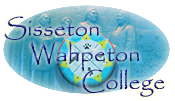
Sisseton Wahpeton College (SWC) is a public tribal land-grant college of the Sisseton Wahpeton Oyate on the Lake Traverse Reservation in South Dakota. It was established in 1979 and serves the Dakota people and the general public. SWC has an average enrollment of about 250 students, of whom more than 80% are tribal members. It has both vocational and academic programs, which includes certificates, associate degrees, and bachelor degrees as well as articulation arrangements with other universities and colleges so that students can transfer for continued studies.
The American Indian College Fund is a nonprofit organization that helps Native American students, providing them with support through scholarships and funding toward higher education. The fund provides an average of 6,000 annual scholarships for American Indian students and also provides support for other needs at the tribal colleges ranging from capital support to cultural preservation activities. Charity Navigator gave the College Fund an overall rating of 88.36 out of 100.
Southwestern Indian Polytechnic Institute (SIPI) is a public tribal land-grant community college in unincorporated Bernalillo County, New Mexico, with an Albuquerque postal address. It is federally operated by the Bureau of Indian Affairs and funded through the Bureau of Indian Education, both agencies within the United States Department of the Interior. More than 120 different Indian Tribes are represented in SIPI's student body.

Tribal colleges and universities (TCUs) are a category of higher education, minority-serving institutions in the United States defined in the Higher Education Act of 1965. Each qualifies for funding under the Tribally Controlled Colleges and Universities Assistance Act of 1978 or the Navajo Community College Act ; or is cited in section 532 of the Equity in Educational Land-Grant Status Act of 1994.
Lac Courte Oreilles Ojibwe University (LCOOU) is a public tribal land-grant community college in Hayward, Wisconsin. It is one of two tribal colleges in the state of Wisconsin. The enrollment averages 550 students. The LCOOU has a main campus in Hayward. More than one-third of students are enrolled at the four outreach sites at Odanah, Bayfield, Hertel, and Lac du Flambeau.
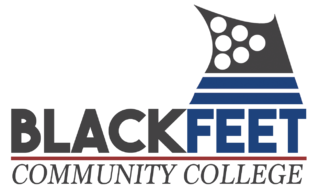
Blackfeet Community College is a private tribal land-grant community college on the Blackfeet reservation in Browning, Montana. The Blackfeet reservation occupies an area of 1,525,712 acres adjacent to Glacier National Park, Lewis and Clark National Forest, and the province of Alberta, Canada. In 1994, the college was designated a land-grant college alongside 31 other tribal colleges.
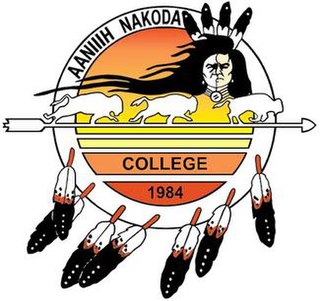
Aaniiih Nakoda College is a public tribal land-grant community college on the Fort Belknap Indian Reservation in Harlem, Montana. The institution incorporates native culture into the curriculum and promotes cultural identity; however, the school is open to both tribal and non-tribal members. Aaniiih Nakoda College is a member of the American Indian Higher Education Consortium (AIHEC), which is a community of tribally and federally chartered institutions working to strengthen tribal nations and make a lasting difference in the lives of American Indians and Alaska Natives. ANC was created in response to the higher education needs of American Indians. ANC generally serves geographically isolated populations that have no other means accessing education beyond the high school level.
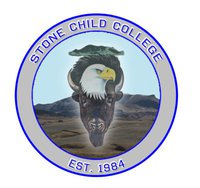
Stone Child College (SCC) is a public tribal land-grant community college in Box Elder, Montana. SCC is affiliated with the Chippewa Cree Tribe and located on the Rocky Boy's Indian Reservation in north central Montana; it is one of seven Tribal Colleges in Montana. In 2008–2009, SCC had an enrollment of 511, of whom 98 percent were American Indian descent; 20 percent were bilingual or of limited English proficiency. SCC students range in age from 17 to 72, with the average age at 30. The college retention rate is 47 percent and the graduation rate is 20 percent.

Tohono Oʼodham Community College (TOCC) is a public tribal land-grant community college in Haivana Nakya, Arizona. As of fall 2023, TOCC's student body was 96 percent American Indian/Alaskan Native. Tohono Oʼodham Community College serves approximately 1174 students. As of 2012, the college's faculty and staff was 57 percent American Indian, half of whom were Oʼodham.
Red Lake Nation College is a public tribal land-grant community college on the Red Lake Indian Reservation in Red Lake, Minnesota. It is fully accredited by the Higher Learning Commission and enrolls about 150 students. The college is supported by elders and community members who speak the Anishinaabe language and who understand the history of the Red Lake Nation.
Navajo Technical University (NTU) is a public tribal land-grant university in Crownpoint, New Mexico, with sites in the towns of Chinle, Arizona and Teec Nos Pos, Arizona. NTU is the largest tribal college in the country and is a 1994 land grant university. It has been accredited by the Higher Learning Commission since 2005 and is home to the first accredited veterinary technician program on an Indian reservation.
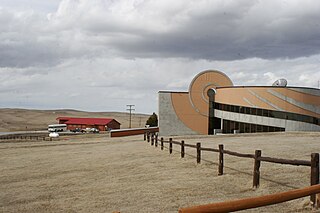
Oglala Lakota College (OLC) is a public tribal land-grant community college in Kyle, South Dakota. It enrolls 1,456 students enrolled part- and full-time. OLC serves the Pine Ridge Indian Reservation, which has a population of about 26,000 and covers 3,468 square miles in southwestern South Dakota.
Wind River Tribal College, or WRTC, is a tribally chartered college located in Fort Washakie, Wyoming. The campus is on the Wind River Indian Reservation in central Wyoming. WRTC serves residents of the Wind River Indian Reservation and surrounding communities. WRTC's enrollment consists of mostly Northern Arapaho and Eastern Shoshone students.
Saginaw Chippewa Tribal College (SCTC) is a public tribal land-grant community college in Mount Pleasant, Michigan, United States. The college was established in 1998 by the Saginaw Chippewa Tribal Committee.









